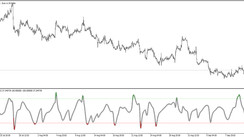The Role and Relevance of Fundamental Analysis in Trading
The application of fundamental analysis in establishing the authentic value of a stock has been a hotly debated topic among financial experts and investors. Rather than wading into the murky waters of this ongoing argument, our focus will primarily be on elucidating how traders can make the most of fundamental analysis to enrich their financial strategies. To do so, we'll delve deep into the merits and drawbacks of fundamental analysis, bringing to light those circumstances where it can significantly impact investment decisions and prove advantageous to traders.
Fundamental analysis serves as a compass guiding traders in their stock evaluation journey. By reviewing key data related to the prevailing economic conditions, the financial status of the company in question, and the market in which the company competes, traders can gain a broad perspective of the business landscape. These insights then serve to form the basis of sound trading decisions, potentially leading to profitable outcomes.
Demystifying the Principles of Fundamental Analysis
Investors utilizing fundamental analysis essentially act as financial detectives, assembling pieces of a puzzle to form a coherent picture. They methodically review a wide array of data related to the existing economic environment, the company's financial health, and the competitive dynamics within the company's industry. The insights derived from this meticulous investigation are then leveraged to gauge a stock's intrinsic value.
With a comprehensive understanding of a stock's true worth, traders are better positioned to determine whether the stock is undervalued, overvalued, or justly priced. This knowledge subsequently equips them to identify compelling investment prospects that hold the potential for good returns.
Moreover, some traders choose to amalgamate the principles of fundamental analysis with those of technical analysis to form a more holistic investment strategy. This combined approach allows traders to discern not only what stocks to invest in, but also when and how to execute their investment decisions optimally.
Unraveling the Process of Fundamental Trading
The process of determining a company's value via fundamental analysis is a comprehensive one. It necessitates a thorough exploration of the economic environment, the industry the company is part of, and the company itself. Armed with this information, the trader forecasts market trends and identifies the inherent worth of the company's shares.
By using fundamental analysis, traders can predict the future value of a stock, and identify if it is overpriced or underpriced. A fruitful analysis can reveal investment prospects that have been overlooked by the broader market, thereby presenting profitable investment opportunities to the trader.
In terms of methodology, there are several avenues a trader can take in conducting a fundamental analysis of a stock. These may include contrasting industry groups against each other or comparing companies within these groups.
Fundamental Analysis in Trading: Case Studies
Successful execution of fundamental analysis relies on several factors, with the targeted trade's potential profit being a crucial starting point. Here, we provide two illustrative examples of how fundamental analysis can be employed to detect profitable investments.
Established Stocks
Large-scale entities like established corporations, mutual funds, and other financial institutions can drive substantial market activity and serve as strong building blocks for an investor's portfolio. In these scenarios, a trader's earnings act as compensation for the risk undertaken.
Various methods can be employed to use fundamental analysis to determine if an investment in a publicly traded, established stock has the potential to be profitable. The aim is to amalgamate and consider all information that might impact the stock's price.
Initially, traders consider the present economic landscape, which includes domestic and international events that could influence the company and its stock price. Key questions include the potential impact of regional conflicts or macroeconomic factors on the company, the industry's prospects, and any disruptive factors that might negatively affect the company's niche.
Next, in-depth research is conducted on the company in question. Understanding the company's business model, its revenue streams, and the examination of its financial reports for the past couple of years is crucial. Traders also look for signs of growth, capable management that can navigate potential economic hurdles, and any competitive edge that could drive future growth.
Lastly, a similar analysis is carried out for the company's competitors. Comparisons are made, and companies are ranked in terms of their investment potential. Through this process, a trader might discover that the target company, or perhaps a competitor, offers lucrative investment potential, or they may conclude that none of the reviewed stocks present promising investment opportunities.
Initial Public Offerings (IPOs)
Initial Public Offerings (IPOs) provide traders a chance to capitalize on the price difference between the initial IPO price and its eventual market price. Here, a trader's earnings serve as compensation for the risk undertaken.
Though the techniques of fundamental analysis outlined earlier can be employed, they may not suffice to evaluate an IPO's profit potential thoroughly. IPOs, especially those in emerging industries, pose risks that are often difficult to measure through fundamental analysis due to the lack of historical data for comparison.
Moreover, IPO prices are often inflated owing to extensive media coverage. Some investors, driven by herd mentality, invest in an IPO without adequate research, leading to an initially elevated stock price that subsequently falls once trading commences.
Special Considerations
Fundamental analysis is typically leveraged as a strategic, long-term decision-making tool, as opposed to a tactical, short-term one. While technical analysis offers insights into market movements and optimal timing, fundamental analysis is best employed over extended periods.
Fundamental analysis equips a trader with valuable insights about the broader market state and the attractiveness of a specific security relative to others. Nonetheless, some investors prefer using technical analysis in tandem to decide the best course of action based on the insights gained through fundamental analysis.





